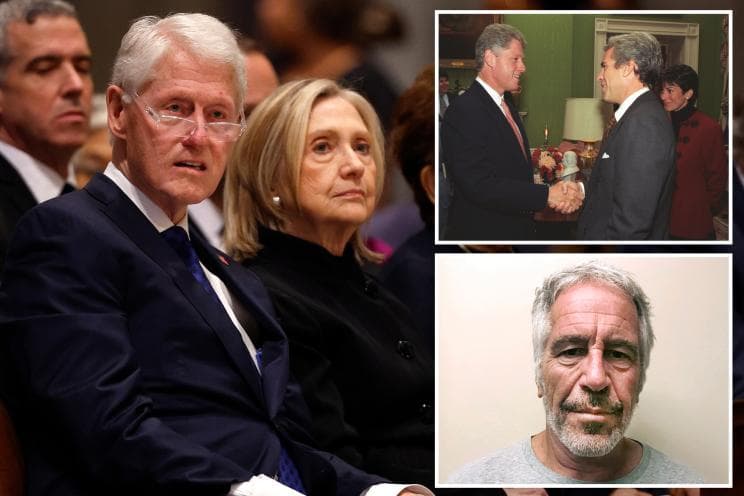Clintons Subpoenaed as Congress Demands Answers in Epstein Investigation
In a significant move, the House of Representatives has summoned former President Bill Clinton and former Secretary of State Hillary Clinton to testify in the ongoing investigation surrounding the late financier Jeffrey Epstein and his associate Ghislaine Maxwell. This action comes as part of a broader effort to scrutinize the federal government"s compliance with sex trafficking laws and the handling of Epstein"s infamous case.
Background & Context
Jeffrey Epstein, a convicted sex offender, was arrested in July 2019 on federal charges of sex trafficking minors in Florida and New York. His connections to high-profile figures, including politicians, celebrities, and business moguls, have fueled public intrigue and speculation surrounding his alleged network of abuse and exploitation. Epstein died in his jail cell in August 2019 under controversial circumstances, prompting widespread conspiracy theories and calls for accountability from various sectors of society.
The investigation into Epstein"s activities has not only raised questions about his actions but also about the systemic failures that allowed such a network to flourish. Ghislaine Maxwell, who was arrested in July 2020, was convicted in December of that year of sex trafficking and conspiracy charges related to her role in Epstein’s operations. As Congress seeks to understand the full extent of the federal response to these egregious crimes, the subpoenas issued to the Clintons and other former officials underscore the seriousness of the inquiry.
Key Developments
In addition to the Clintons, the House has issued subpoenas to former FBI Directors James Comey and Robert Mueller, along with six former prosecutors who were involved in the Epstein case. The subpoenas explicitly state, “The facts and circumstances surrounding Mr. Epstein"s and Ms. Maxwell"s cases have generated immense interest and scrutiny from the public.” This indicates a commitment from Congress to ensure transparency and accountability in how the federal government has dealt with sex trafficking cases.
The inquiry"s focus on the Clintons has sparked a mix of reactions, with some viewing it as a necessary step toward accountability, while others criticize it as politically motivated. The subpoenas signify a pivotal moment as Congress aims to reinforce its oversight role in federal investigations, particularly those involving high-profile individuals.
Broader Impact
The implications of this investigation extend beyond the individuals directly involved. It raises critical questions about the effectiveness of federal laws designed to combat sex trafficking and the extent to which powerful figures can evade scrutiny. Legal experts suggest that the outcome of this inquiry could lead to significant reforms in how such cases are prosecuted and investigated.
Furthermore, public trust in government institutions is at stake. The Epstein case has highlighted the need for a more robust and transparent judicial system that holds all individuals accountable, regardless of their status or connections. As previously reported, similar high-profile investigations have often faced challenges in achieving justice, leading to a growing demand for reform in the legal framework surrounding sex trafficking and abuse cases.
What’s Next
As Congress prepares for the upcoming hearings, the focus will be on how the summoned officials respond to the subpoenas and the information they provide. The hearings are expected to attract significant media attention and public interest, as many await clarity on the Clintons’ alleged connections to Epstein and whether their testimonies will shed light on the broader implications of the case.
In addition, the inquiry could pave the way for legislative changes aimed at strengthening sex trafficking laws and ensuring better oversight of federal investigations. As the landscape surrounding these issues continues to evolve, the outcome of this investigation could serve as a pivotal moment in the ongoing fight against trafficking and exploitation, reminding the public and lawmakers alike of the importance of accountability and justice in the face of systemic failures.



![[Video] Gunfire between Iraqi security forces and Sadr militias in Baghdad](/_next/image?url=%2Fapi%2Fimage%2Fthumbnails%2Fthumbnail-1768343508874-4redb-thumbnail.jpg&w=3840&q=75)
